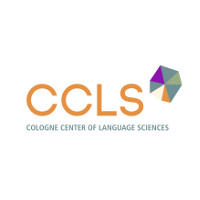The study of phonetics is concerned with articulatory, acoustic and auditory properties of sound systems, sound structure (phonology) as well as the intonation of spoken language, both on a single-language basis and cross-linguistically. Students gain insights into communicative functions of linguistic phenomena and learn to discuss these by means of descriptive and experimental approaches.
During studies, students acquire competence in phonetic-phonological analysis and language modelling, with a special focus being given to empirical investigations carried out in the context of seminars. Students also learn to interpret complex experimental phonetic data (as arising from, e.g., intonation research and cinematics) for the purpose of advancing phonological theory.
Master’s theses are typically empirical/experimental in scope, allowing students to undertake their own investigations. The Institute laboratory is fully equipped for exploring both articulatory and acoustic issues.
Contents of the Phonetics Specialization Module
Students acquire in-depth knowledge of the theory and practice of current research in laboratory phonology and examine phonological questions by means of experimental phonetic methods.
The module is concerned with developing the theory and practice of prosodic analysis and the articulatory modelling of spoken language as well as interactions between the two. The most important prosodic models are examined and their applicability to different languages tested.
GToBI (German Tones and Break Indices), the model of German intonation currently used to investigate the phonological structure of German, represents a further highlight of the module.
Articulation studies develops students’ knowledge of articulatory modelling and its bearing on the acoustic speech signal. Interactions of tone and segments and their dynamic modelling is also treated.
Formulating a research hypothesis in prosody and articulation, as well as developing appropriate measuring criteria and annotation techniques on the basis of current research literature, is a major part of writing a term paper in phonetics.
The project seminar “Laboratory Phonology” enables students to plan, execute and evaluate small-scale production and/or perception experiments based on a variety of phonetic and phonological issues (including considering workload, viability, execution, time management and costs). Students learn to plan and conduct an experiment using medical and acoustic technology and to evaluate the data collected with regard to its modelling under prosodic and articulatory aspects.
The results of the project seminar are then presented in the form of a presentation in the (Phonetics) colloquium. In addition to a clear structuring of the working hypothesis, the methods and results, as well as the implications of the results for the field as a whole, the audiovisual presentation of the laboratory results, as contributing to a critical discussion, is emphasized.



